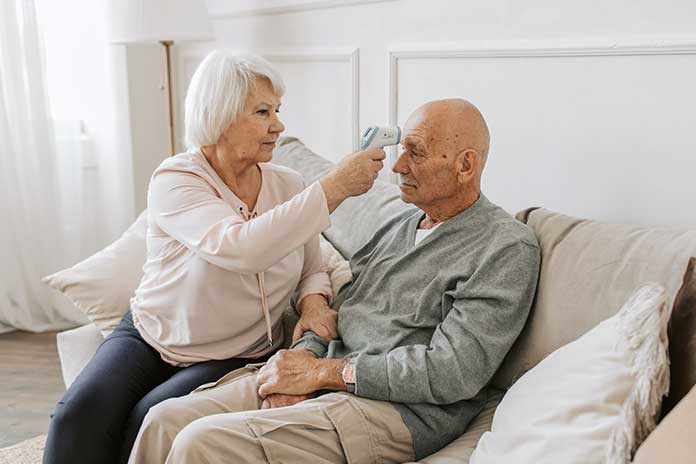In the elderly population, the regular use of drugs and several drugs simultaneously is widespread. Many older adults have chronic pathologies, and drugs are used to control them, alleviate the symptoms, and prevent complications. Sometimes, however, for the sake of the patient, it is necessary to be careful of drug interactions, which multiple medicines can cause. Remembering – and this is an essential aspect – that in many cases, the elderly patient takes medicines for which a doctor’s prescription is not necessary, based on an independent decision or that of one’s family members. In this case, we speak of “self-medication,” a phenomenon that is necessary to observe.
The high consumption of drugs by the elderly is a topic that has been discussed for some time but has returned to the pages of the newspapers. During the congress, several speakers underlined the need for the patient or his family to refer to a trusted doctor who follows the patient being aware of all his health problems so that he can also supervise the contraindications of taking many different drugs. It may happen that – being only partially aware of the patient’s situation – a specialist doctor consulted occasionally can prescribe an additional drug, sometimes not compatible with the set of therapies regularly taken by the patient.
What Do We Mean By Saying That Some Seniors Take “Too Many” Medicines?
Show that 98% of the population over 65 received at least one pharmaceutical prescription during the year for an average of three doses daily. The most commonly used drugs are those for the cardiovascular system: for example, drugs used to regulate blood pressure (antihypertensives) are used by 80% of those over 65s and 96% of those over 85s.
Doctor, Is It Just A Question Of Quantity?
In some cases, drugs prescribed to the elderly can cause problems to a greater extent than the benefits they can guarantee. For this situation, we talk about a ” horrible gamble benefit proportion,” and it depends on getting specialist assessment circumstances that are often described by extensive intricacy. A few medications are utilized more than they ought to. For example, some drugs used for treating gastric ulcers and gastroesophageal reflux (proton pump inhibitors) are used by 50% of the elderly population. Such widespread use may not always be justified.
As we said at the beginning of the article, taking too many drugs, even in the absence of absolute need, can cause side effects. In some cases, the medicine may only be necessary for a limited period until the health problem has been resolved. In other circumstances, however, a drug must necessarily be taken by the elderly patient for the entire duration of life to keep a given health problem under control, and the doctor will, in any case – after listening to the patient – decide on the most appropriate therapy. In this second circumstance, the patient mustn’t interrupt the treatment if he ” feels better”: the benefits of the treatment must not lead to a lower “adherence” to the therapies.
So What Can Be Done?
One of the concepts attracting the most attention in this sense is pharmacological deprescribing (the English term is often used: deprescribing ), i.e., identifying and suspending treatments in cases where the adverse effects may outweigh the benefits. Centered on the consumption of drugs by the elderly, it represents a valuable tool for promoting interventions and projects aimed at improving the quality and safety of drug use in this population.
It is estimated that one-third of people over 65 use ten or more drugs simultaneously. This report helps to understand various aspects of this phenomenon by identifying drug deprescribing, i.e., reducing the number of prescribed active ingredients, as a targeted response to ensure more excellent safety and appropriateness of treatment. The prescription of many drugs does not always correspond to the best treatments or better health”.
Doctor, Is There Any Rule I Can Follow When Taking Medication?
In general, the relationship of trust established with one son’s doctor should reassure the patient regarding the appropriateness of the prescribed therapy. About medicines for which a doctor’s prescription is not necessary, especially in the case of elderly patients, the doctor should always be consulted. It is generally worth buying and taking an “over-the-counter” medicine if it can help improve your health. If, on the other hand, the drug itself can even prove to be a source of problems, then it is advisable to avoid taking it.
Also Read: 9 Ways To Stay Social As A Senior


